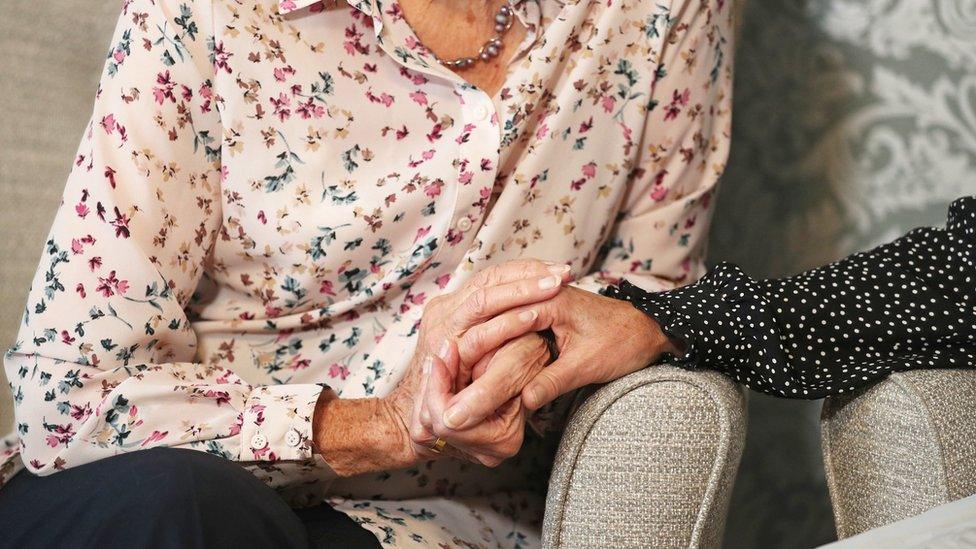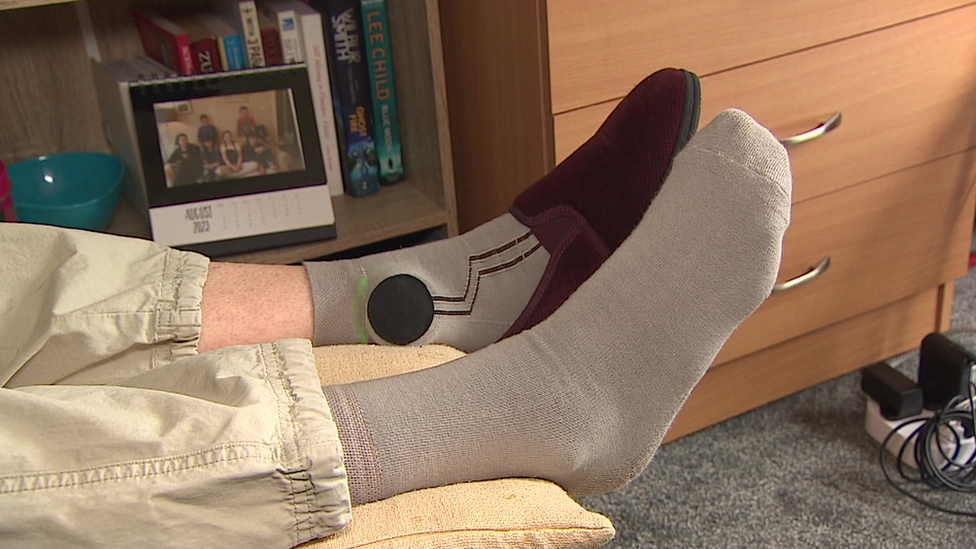Dementia: Almost two in five with condition undiagnosed, report says
- Published
- comments

The gap between those who have dementia and those with a diagnosis has grown by 8.3% compared to pre-pandemic levels, researchers say
Almost two in five people with dementia in England do not know they have it, according to a new report.
The Dementia Commission says 36% of those with the condition are undiagnosed, but in the worst-affected authorities rates are as high as 50%.
The report's authors call for better ways to tackle "alarming" rates of undiagnosed dementia.
The government said NHS England was producing a toolkit for GPs to help them diagnose the condition.
Former health minister Lord James O'Shaughnessy, who co-chairs the commission, warned the report, external's findings were a "critical juncture for our healthcare system".
"The unrelenting rise in undiagnosed cases demands a paradigm shift in our approach to dementia care," he said.

Dementia can be difficult to diagnose, particularly in the early stages
A quarter of the worst-affected local authorities are witnessing undiagnosed rates as high as 50%, according to estimates for 2023 from the Office for Health Improvement and Disparities.
Researchers found the gap between those who have a diagnosis and those who have the condition had grown by 8.3% when compared to pre-pandemic levels.
The situation calls for a change in healthcare delivery where accountable Integrated Care Systems (ICSs) can play a key role, the report suggests.
ICSs are partnerships of organisations that come together to plan and deliver joined-up health and care services.
Next year, Dorset ICS will trial socks on care home patients with dementia and autism. The socks use artificial intelligence to track vital signs such as heart rate and sweat, enabling carers to intervene before issues escalate.
The report's other recommendations include a task force made up of health and social care professionals, patients and caregivers that could help redesign systems; and a common digital platform in which patients and their carers could access medical records and information about clinical trials.
Dementia can be difficult to diagnose, particularly in the early stages.
The Social Care Institute for Excellence says a number of tests and assessments can be needed, external to achieve a definitive diagnosis, and to rule out other illnesses with dementia-like symptoms.
Most people will initially see their GP to discuss concerns with their memory, communication or behaviour.
A diagnosis will likely be confirmed through an assessment of a person's mental abilities, reviews of medical and personal histories, a series of blood, glucose and urine tests, and brain scans.
The Dementia Commission forms part of the NHS Innovation and Life Sciences commission, hosted by policy institute Curia.
A Department of Health and Social Care spokesperson said: "We're working to identify and treat more people living with dementia and provide potential new treatments as they become available.
"NHSE is producing a toolkit for GPs which will help them identify people with dementia using patient records, and is carrying out a project to improve dementia diagnosis in care homes.
"Alongside this, we are doubling the funding for dementia research to £160 million a year by 2024/25. Our Major Conditions Strategy includes a focus on dementia and will consider prevention, early diagnosis, treatment and long-term care to support people to stay in good health for longer".
- Published23 October 2023

- Published19 October 2023

- Published14 July 2019
